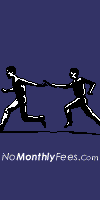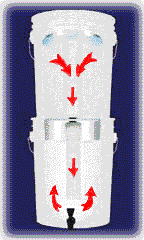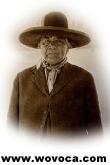|
||||||||||||||||||
Press CTRL+D to bookmark this page! |
||||||||||||||||||
 |
||||||||||||||||||
| Click here for
EarthMotherCrying Wallpaper |
||||||||||||||||||
| The American Revolution As Seen by the British | ||||||||||||||||||
|
||||||||||||||||||
|
||||||||||||||||||
|
|
||||||||||||||||||
|
||||||||||||||||||
|
||||||||||||||||||
|
||||||||||||||||||
|
||||||||||||||||||
The American Revolution As Seen by the British
The Traditional Version"Taxation without representation is tyranny," British colonists protested when Parliament passed the Stamp Act in 1765. Two years earlier, eager settlers and land promoters had been provoked when expansion west of the Allegheny Mountains was blocked by the Proclamation of 1763. Then the Townshend Acts imposed duties on vital colonial imports in 1767. Even with the tax, British tea from India was still cheaper than inferior Dutch tea, but it was the principle involved that prompted the dumping of 342 cases of this disputed commodity into Boston Harbor in 1773. The British Parliament responded with the "Intolerable Acts," which closed the Boston port. When protest and reprisal escalated into armed conflict at Lexington, Concord, and Bunker Hill in 1775, the colonists chose "liberty or death" rather than indefinite "slavery" as a part of the British Empire. According to their Declaration of Independence (1776), they believed that men (! -- white!) possessed "certain unalienable rights" and that a government derived its power from the "consent of the governed." These new "Americans" proceeded to secure their rights by force of arms in the modern world’s first revolutionary war against a mother country.
The Other Side"The colonies were acquired with no other view than to be a convenience to us," the London Chronicle pointed out in 1764, "and therefore it can never be imagined that we are to consult their interest preferable to our own." In fact, the British considered that their American colonies, having enjoyed an extended period of "salutary neglect" during the 18th century, were practically self-governing. They had only to fulfill their vital function within the mercantile system by providing raw materials and consuming the manufactures of the British Empire. (The laws prohibiting trade between the colonies and foreign countries had never been strictly enforced anyway; therefore, smuggling was a popular avocation.) There remained the thorny subject of taxation. At considerable expense, Britain had won France’s North American territory in the Seven Years’ War (1756-1763). Britain now faced a large postwar debt and the responsibility of additional land to protect and govern. Highly burdened by taxes themselves, the British were merely asking the colonies to bear the expense of their own administration and defense. As each proposed revenue bill met with opposition, it was repealed, Parliament being anxious to appease the colonies. But such "lenity" only encouraged additional disobedience, which was skillfully orchestrated by colonial propagandists. The Boston Massacre of 1770, during which redcoats fired on a mob owing to extreme provocation, was played up as if hundreds of colonists had been killed instead of five. Scarcely noted in the British press at first, the Boston Tea Party was magnified from a simple matter of destruction of property into an intolerable insult to British authority. Chiefly responsible for the incident were Sam Adams, a tough and cunning professional politician, who was said to control two Boston mobs which he exploited for his own personal gain and glory, and the rich and vain businessman John Hancock, later described as "an elegant revolutionary" of the "native governing class of merchants and landowners who interests were threatened by imperial policies and by the barrier to obtaining western land." These "incendiaries" used all manner of intimidation, even tarring and feathering loyal subjects of the king, to undermine their own current democratic self-rule, although British lawyers determined after careful consideration that the rebels were not guilty of high treason -- yet. According to official accounts of the battles of Lexington and Concord, the British did not fire in self-defense until besieged by rebel mobs who scalped and removed the ears of their victims. These techniques, in addition to such practices as shooting from cover, were considered dishonorable conduct. By 18th-century European standards, opponents were required to mass large formations of troops facing one another on open terrain. Still maintaining their "magnanimous tolerance" up to the eve of Bunker Hill in 1775, the British offered pardon to all who would lay down their arms -- except Adams and Hancock, whose offenses were "of too flagitious a nature to admit of any other consideration than that of condign punishment." With the Declaration of Independence the colonists "crossed their Rubicon," as historian Edward Gibbon put it. King George III favored armed intervention to put down the rebellion, while his advisers preferred a naval blockade; wavering between a land or sea strategy, the British never fully implemented either. The opposition Whigs, advocates of trade rather than taxation and with no stomach for the war at all, accused the government of corruption and incompetence. The chief culprits were the rakish Lord Sandwich, who ran a highly idiosyncratic admiralty, and Lord George Germain, the arrogant colonial secretary whose instructions ensured the defeat of Gen. John Burgoyne at Saratoga in 1777. A major blow to British prestige, Saratoga encouraged the French to avenge the humiliation of the Seven Years’ War by coming to the aid of the Americans. In fact the French navy -- not the colonial farmer -- defeated the British navy and cornered Cornwallis at Yorktown in 1781, thus ending the war for all practical purposes. Thanks to the political and physical difficulties of conducting such a huge overseas operation, the world’s greatest power was defeated by a ragged band of revolutionaries. But the loss of the American colonies, as formalized by the Treaty of Paris in 1783, was taken by the British with characteristic aplomb -- rather as if a group of businessmen were closing down an unprofitable branch, it was said.
Eyewitness Accounts"Well, boys, you’ve had your Indian caper, haven’t you?" Admiral Montague of the Royal Navy remarked to a group of Bostonians after the Boston Tea Party. "But mind, you’ve got to pay the fiddler yet." British officers in the colonies were at first inclined to express such patriarchal condescension, and had an upper-class contempt for the rough-hewn Americans; letters home revealed their chief concerns to be pay, promotion, and perquisites. As the War settled in for good and earnest, the British became more bitterly impassioned. "I every day curse Columbus and all the discoverers of this diabolical country," Maj. John Bowater wrote, while a surgeon on board one of His Majesty’s ships described the rebel army as "truly nothing but a drunken, canting, lying, praying, hypocritical rabble." A few, however, were moved to admiration of the Americans, particularly for Gen. George Washington and his ragged "banditti," who managed to frustrate the empire’s finest. "Come on, Maister Washington," murmured a grizzled old Highland officer in Virginia. "I could na think of gangin’ home without a sight of you." With their defeat at Yorktown, it seemed to the British soldiers like "The World Turned Upside Down" -- one of their marching songs in which "ponies rode men" and "grass ate the cows." News of the defeat was received by British prime minister Lord North "as he would have taken a ball in his breast," a colleague reported. "O God! it is all over!" North kept repeating, and it was for him. His government would soon fall. The king, who had threatened to abdicate rather than give the rebels their freedom, steeled himself to receive John Adams, the ambassador from the new nation. Privately, however, he confided, "[I will] never lay my head on my last pillow in peace and quiet so long as I remember the loss of my American colonies." From: "The People's Almanac #3" by David Wallechinsky and Irving Wallace
|
||||||||||||||||||
|
||||||||||||||||||
Shapeshift to WOVOCA! to view this site's main page |
||||||||||||||||||
|
||||||||||||||||||
|
||||||||||||||||||
|
||||||||||||||||||
|
||||||||||||||||||
|
||||||||||||||||||









![[Image]](pict41.jpg)
![[Image]](pict40.jpg)
![[Image]](pict43.jpg)